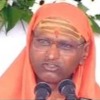Gustakh List

Nupur Sharma
Nupur Sharma is an Indian politician and lawyer who served as the national spokesperson for the Bharatiya Janata Party (BJP). She holds a law degree from the University of Delhi and a Master of Laws (LLM) from the London School of Economics. Before her role as a national spokesperson, she was active...
68a764321ffb6.jpeg)
Aasiya Noreen (Asia Bibi)
A Christian woman and a farm laborer, Aasiya Noreen, commonly known as Asia Bibi, was accused of making derogatory remarks about the Prophet Muhammad during a dispute with fellow Muslim women over a cup of water. The women reportedly refused to drink water from the same vessel as a Christian.

Ramgiri Maharaj
According to reports, Ramgiri Maharaj referenced the Prophet Muhammad while discussing atrocities faced by Hindus in Bangladesh, which was perceived as blasphemous by some Muslim groups. He later claimed that his remarks were taken out of context, stating that a part of his one-and-a-half-hour speec...

Kanhaiya Lal Teli
Allegedly shared a social media post supporting Nupur Sharma, a Bharatiya Janata Party spokesperson, whose comments on the Prophet Muhammad sparked the 2022 Muhammad remarks controversy. This was perceived as blasphemous by the perpetrators, leading to his murder.

Sharmishta Panoli
A Hindu influencer known as Sharmishta posted a video mocking a Pakistani troll about the Pahalgam massacre, with references to “72 hoors” and Prophet Muhammad, which was perceived as insulting by some communities. The backlash included death threats and calls for beheading. Legal proceedings are re...
Definition of Gustak-e-Nabi
Gustak-e-Nabi (also known as Sabb-e-Nabi or Blasphemy against the Prophet) refers to any form of disrespect, insult, mockery, or defamation directed towards Prophet Muhammad ﷺ. In Islam, this is considered among the gravest of sins with severe consequences in this life and the hereafter.
إِنَّ الَّذِينَ يُؤْذُونَ اللَّهَ وَرَسُولَهُ لَعَنَهُمُ اللَّهُ فِي الدُّنْيَا وَالْآخِرَةِ وَأَعَدَّ لَهُمْ عَذَابًا مُهِينًا
Quran 33:57 - "Indeed, those who abuse Allah and His Messenger - Allah has cursed them in this world and the Hereafter and prepared for them a humiliating punishment."
Forms of Gustak-e-Nabi
- 1. Insulting Language: Using offensive words when referring to the Prophet ﷺ.
- 2. Mocking: Making jokes or belittling remarks.
- 3. False Attributions: Spreading fake statements about the Prophet ﷺ.
- 1. Defamatory Publications: Publishing insulting material.
- 2. Online Posts: Posting offensive content on the internet.
- 3. False Hadith: Spreading fabricated Hadith.
- 1. Desecration: Disrespecting Islamic symbols or Prophet's representations.
- 2. Public Mockery: Participating in protests mocking the Prophet ﷺ.
- 3. Exploitation: Using the Prophet’s name for disrespectful commercial gain.
- 1. Offensive Drawings: Caricatures or insulting images.
- 2. Image Distortion: Editing Islamic imagery disrespectfully.
- 3. Satirical Videos: Videos mocking sacred Islamic values.
Historical Incidents
1. The Case of Ka'b ibn al-Ashraf
A Jewish poet who mocked the Prophet ﷺ. The Prophet ﷺ permitted his execution due to his slander.
2. The Musaylimah Claim
Musaylimah falsely claimed prophethood and insulted the Prophet ﷺ. Abu Bakr (RA) fought against him.
3. Umar's Response
Caliph Umar (RA) executed someone who insulted the Prophet ﷺ during his rule.
من أعان على قتل مؤمن بشطر كلمة لقي الله يوم القيامة مكتوب بين عينيه آيس من رحمة الله
Whoever helps in the murder of a Muslim even with half a word will meet Allah with a mark between his eyes — despairing of Allah's mercy.
Sunan Ibn Majah 2620


